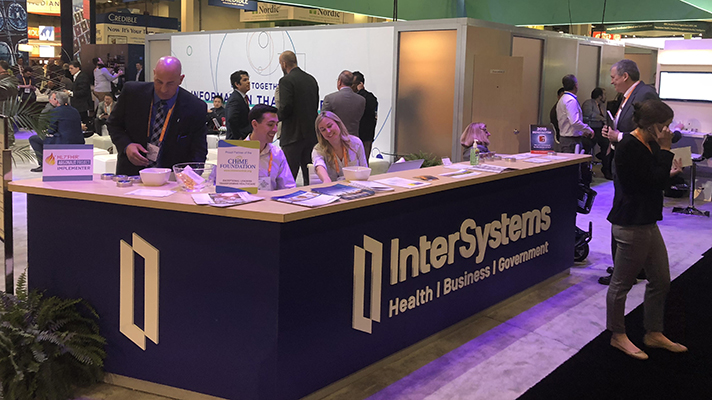
There are three primary factors driving health IT today: It is distributed, it is information-intensive, and it is changing rapidly, said Kathleen Aller, director of market strategy for healthcare at InterSystems.
The vendor will be focusing on these and other health IT trends, including FHIR and AI, at HIMSS19 in February in Orlando.
“The distributed nature of it means that patients are seeking care from all points of the healthcare ecosystem, and the data from these points of care – social, outpatient, inpatient, specialty clinics, etc. – have to be aggregated into a unified patient record,” Aller explained.
Beyond human understanding
Healthcare is more information-intensive than some other industries and growing more so – there already are far more data points available for care decisions than the human mind can process unaided, she said.
And rapid change has dominated the healthcare industry. The explosion of wearables and the Internet of Things, for example, mean that the entire healthcare industry needs to innovate rapidly, she said.
“HIT developers need to espouse a more agile approach than the long production cycles to which they may be accustomed,” she contended.
On another front, the Fast Healthcare Interoperability Resources HL7 standard, also known as FHIR, and its contribution to unlocking the value of health information, is one example.
“We see FHIR as a very important driver of healthcare innovation in the foreseeable future,” Aller said.
But is AI over-hyped?
Additionally, artificial intelligence and machine learning, especially for intelligent clinical workflows and extended decision support, remains very hyped, but there is truly some substance behind it, she added.
“Aggregating and normalizing the data behind machine learning models is one of the keys to realizing the full potential of these technologies,” she said.
The aforementioned drivers of health IT – distributed, information-intensive, changing rapidly – intersect with trends like FHIR and AI in multiple ways. For example, value-based care models are an example of the rapid business change in healthcare.
“They attempt to align incentives across that distributed ecosystem,” Aller explained. “But that requires the kinds of robust connectivity that FHIR is designed to enable. Similarly, juggling information from all those sources to coordinate and optimize care in a value-based world requires real-time analytics and intelligent workflows.”
Elsewhere, new information sources like genomics and telemetric devices create both opportunities and challenges.
Smarter systems needed
“Ultimately, smarter IT systems are needed to help with this to provide the intelligence necessary to make effective use of all this new data,” she said. “Can technology free clinicians up from the keyboard and help them engage better with the patient? Can it drive patient engagement in their own health? Can it help administrators, payers and clinicians alike cut through the noise and make smarter decisions for the patient? These are questions we need to know the answers to right away.”
All of these trends are outside pressures on health IT – but CIOs have more tools than ever before to help manage digital transformation and rise to the challenge.
“AI and machine learning have a lot of potential in solving some questions, but other technologies may be overlooked in this space race to develop revolutionary apps,” Aller said. “FHIR, natural language processing, smart alerts, patient engagement apps – these all are meaningful technologies that can be employed today to really transform how health systems perform and how patients receive care.”
InterSystems will be in booth 1559.
Twitter: @SiwickiHealthIT
Email the writer: bill.siwicki@himssmedia.com
